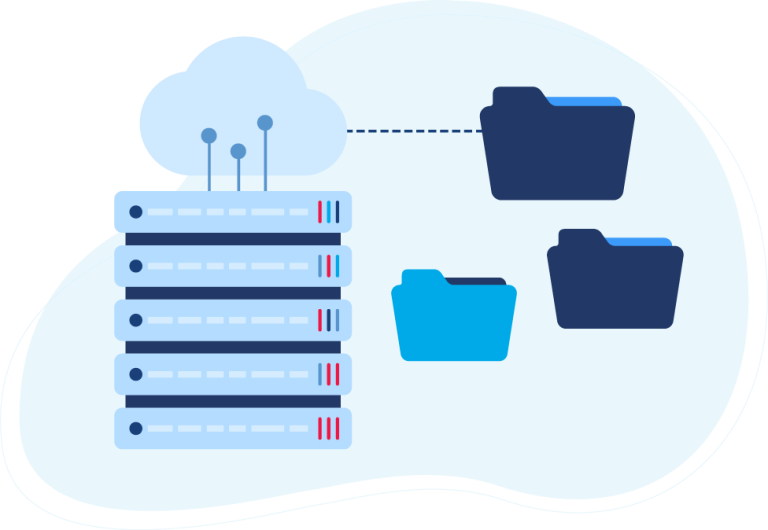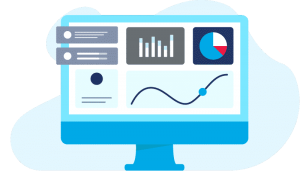Let’s dive into what you need to know before implementing an ERP system for your business. From when it’s time to consider an ERP solution, to various types of ERPs in the market.
What is an ERP System?
ERP stands for Enterprise Resource Planning, which is a bit of a vague term so let’s dive in to understand what it really means. If you run a business under $1 million a year in revenue you probably have no need for an ERP, but if you still want to learn more about ERPs, stay with me. For businesses above $1 million a year in sales, an ERP tool will help you centralize many of your back-end processes. The term back-end processes are also kind of nebulous, what does that really mean? Here are some examples:
- Accounting
- Human Resources
- Customer Relationship Management (CRM)
- Order Management
- Inventory
Why would you want to centralize these processes in your business? As a business grows well over the $1M/year in revenue mark they start to add more people to the team and more internal processes. Sharing information across departments can be very difficult if employees are using spreadsheets and email, those manual processes won’t scale, aren’t transparent, and don’t allow for proper financial reporting. An ERP system solves this challenge and centralized many of your back-office processes into a single roof.
But before you even consider implementing an ERP system, your data needs to be cleansed. Data cleansing an integral part of the entire ERP implementation process. After all, bringing precise, relevant, and up-to-date records while minimizing the waste will only help you to minimize any challenges after going live with your new ERP solution.
What are Examples of ERP Systems?
If your company does more than $50 million a year in sales, these are popular ERPs:
If your company is in the $1 million to $50 Million a year bucket, here are some options:
There are many more ERP systems available than what I listed here. If you are looking for resources to choose your ERP system, take a look at this Software Advice article, check out Gartner Research, and start educating your company on your options.
What Types of Businesses Need an ERP System?
In a recent survey of ERP purchase trends, 47% of businesses running an ERP system were manufacturing companies. Manufacturing companies are the ideal candidate for ERP systems as they have the following processes:
- Raw Material Purchasing
- Work in Process
- Finished Goods
- Labor Attribution
- Cost Accounting
- Financial Reporting
If you are a manufacturing company, you have complex inventory and assembly processes that an ERP can help you streamline. In addition, there are complicated financial reporting issues such as work in process, labor attribution, etc that are much easier to report on with the help of an ERP. Other types of businesses may need ERP systems as well: distributors, retailers, wholesalers, and these are just a few examples.
The Difference Between On-Premise and Cloud-Based ERP Systems
On-premise software means that it is installed locally on your company’s servers. Those servers could be physically located at your company or under your control in the cloud, either way, you are responsible for the software and future maintenance. On-premise software typically costs more upfront, but if you use the software for more than 5 years your overall cost of ownership will approximate many of the cloud-based ERP offerings.
Cloud-based ERP is hosted on the vendor’s servers and you access the software remotely, typically through a web browser. Cloud-based ERP systems are generally more affordable in the first few years of ownership, so if your company does under $10 million a year in annual revenue this would be a good place to start.
On-premise solutions give you more access to your data and typically easier to customize than cloud-based solutions. However, the ability to tweak the software means that your IT department will be responsible for security. If security is an issue for your company, it’s recommended that you go with a cloud-based ERP solution.
Most of the large ERP solutions offer both a cloud-based and on-premise version of their software, including the following vendors: SAP, Oracle, Microsoft Dynamics, Sage, and Infor.
How can you choose an ERP System?
Software selection is a lengthy and involved process. You can dive in and start learning about each of the ERP systems and how they will work for your company, however, don’t go it alone! Companies find the most success when they involve multiple stakeholders throughout the business. If you are forming a committee to evaluate an ERP system, including people from the following functional areas:
- Purchasing
- Payables
- Accounting
- Warehouse
- Operations
- Finance
- Senior Management
In addition to forming a diverse team of stakeholders, you may want to consider hiring an independent third party to help you with your software selection process. A 3rd party company has plenty of experience working with ERPs and can help guide your company to the ERP that makes the most sense for your business.
How Long Will it Take to Implement an ERP?
There are 2 components to an ERP implementation, there is the selection process and then then the deployment. For the selection process, your ERP decision-making process will go faster if your company is smaller. This intuitively makes sense as companies with less than 100 employees often have simpler business processes compared to businesses with more than 1,000 employees. Do not try and rush the selection process, take time to select a list of potential vendors, line up demos, in-person meetings, and do a thorough amount of due diligence.
The deployment process will take anywhere from 3 to 12 months (on average) for most businesses that implement an ERP. The average lifespan of an ERP system is anywhere from 5 to 10 years and will become an integral part of the lives of the employees in your business.
Implementing an ERP system requires some strategic planning
Don’t rush into the decision to purchase an ERP system for your company. Involve many stakeholders in your company in the process and don’t be afraid to enlist outside expertise (independent from the vendors). Create documentation to score each of the ERP systems you evaluate and consider the trade-offs for on-premise vs. cloud-based solutions. Purchasing an ERP is a big step for your company and an exciting one, your business is growing and it’s time to put some standards in place to help control your business processes and financial reporting.
About BTown Web
BTown Web is a Seattle based agency that provides programming support to eCommerce companies. We are official Shopify Plus Partners and specialize in site development, migrations, integration, and custom app development.
 D365 Business Central
D365 Business Central Netsuite
Netsuite


